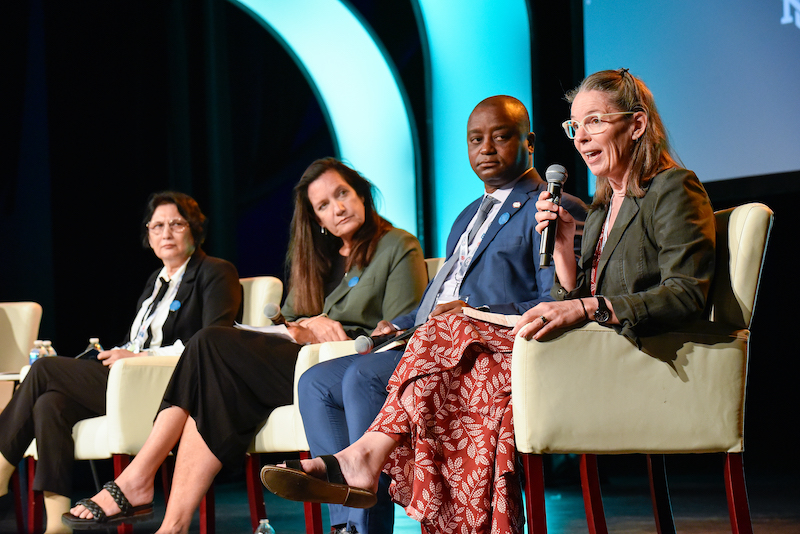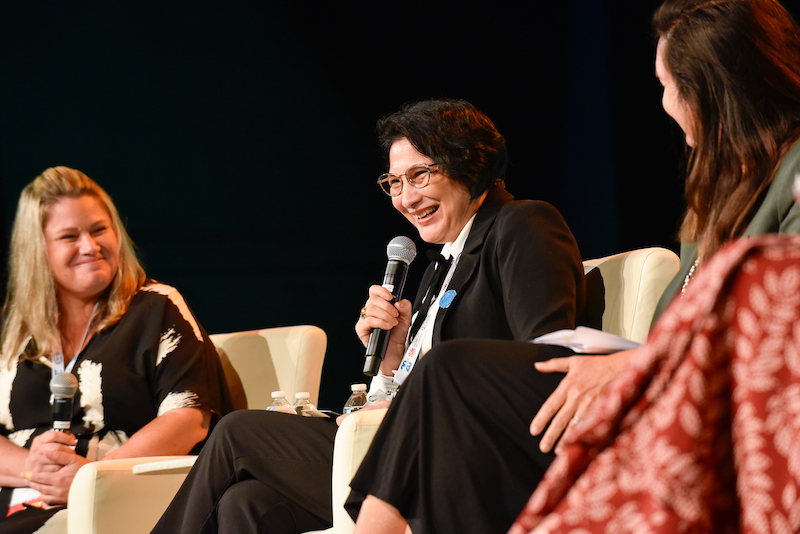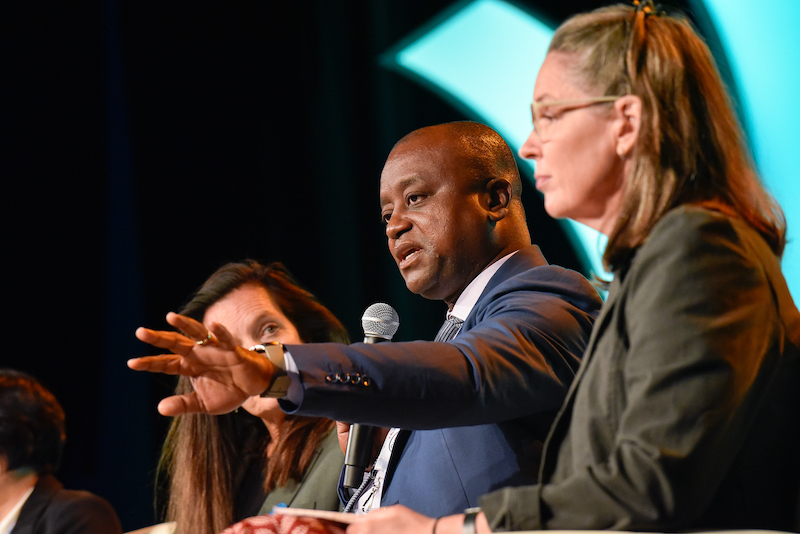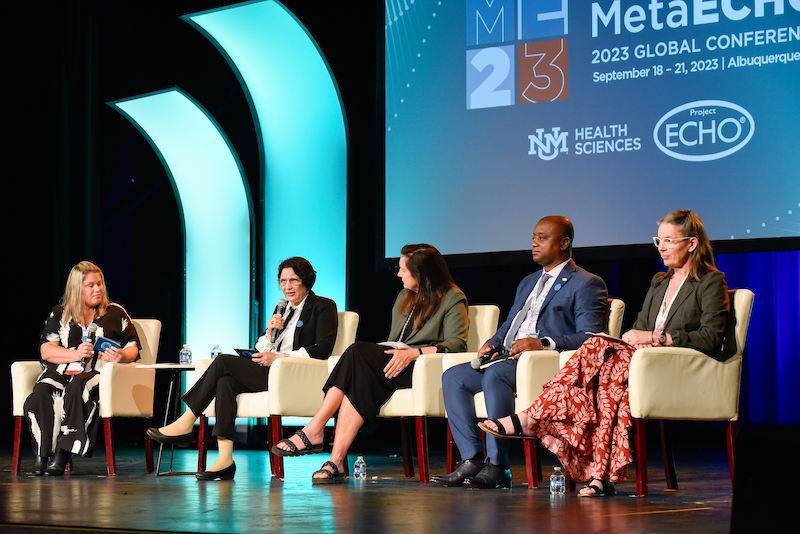A panel at the 2023 MetaECHO conference convened global experts on how and why the ECHO Model makes a difference for gender equity – and what we still need to do.
“Gender equity is not new to Project ECHO,” Simran Priel, MPH, Project ECHO’s director of gender equity, explained, looking out at a full house in the Albuquerque Convention Center’s Kiva Auditorium. “For 20 years, ECHO’s work has been about ‘leveling the playing field’ and creating access to professional development opportunities. But our initiative is new in the way we are now making a focused effort because addressing gender equity is at the root of many issues, whether that’s poverty, poor health outcomes, access to education, and others.”
The ECHO Model is at the center of furthering Project ECHO’s Gender Equity Initiative. “Democratizing knowledge—beyond circles of privilege—is key for all of these factors,” Priel emphasized. “We are increasing opportunities for women and girls around the world. We want to co-create this with you.”
Speaking from a range of experience across the world, panelists focused on key gender equity touchstones that can apply across contexts, ECHO programs, and the lifespans of women and girls.

Pictured from left to right, Anuradha Rai, Mary Nell Wagner, Konan Alphonse, and Dr. Eliza Buyers represented global, diverse perspectives on gender equity.
Education
“Gender stereotypes formed in children impact their belief systems, attitude and behavior,” began Anuradha Rai, director of the Gender Equity India Pilot Project, an equity-focused curriculum introduced in 32 schools across 12 states in India. “But, when you believe you can have a critical dialogue with young children about these stereotypes, that is when we can change how they start establishing beliefs about others and roles, and [instead] increase gender equity.”

Anuradha Rai, pictured between Simran Priel and Mary Nell Wagner, offered her perspective on teaching gender equity at an early age and within education systems.
Societal Perspectives and Stigma
“We see how people blame these issues [of gender inequity] on aspects of their own culture, the religion around them, or something in society,” added Konan Alphonse, Project ECHO’s senior regional consultant for women’s programs in francophone Africa. “That is important but a solution will come when more people, whoever they are, say: I will do something about gender inequity.”
Alphonse emphasized the importance of combatting stigma, adding, “We are working to make it normal to speak up for gender equity, whether that is men or women speaking up, because that’s when things will more quickly change.”

Konan Alphonse works closely with Project ECHO women’s programs across francophone Africa.
Health and Systemic Barriers
Dr. Eliza Buyers, a Colorado-based obstetrician-gynecologist focused on sexual and reproductive health who started Project ECHO Colorado’s Adolescent Reproductive Health program, touched on how ECHO programs in health care can begin to integrate knowledge on systemic and intersectional factors.
“If we are impacting gender equity throughout the lifetime, we need to include that systemic racism compounds existing gender inequities in pediatric, adolescent and maternal health outcomes,” Buyers explained. “But patient-centered care is an evidence-backed solution towards reducing bias. The patient is the expert on their experience, and we see better outcomes knowing their beliefs and their opinions matter most – that’s gender equity, too.”

The 2023 MetaECHO conference marked the first MetaECHO for Simran Priel, at left, Project ECHO’s new Director of Gender Equity.
Linking Health Care to Economic and Financial Freedom
“Health care and economic opportunity: we are all focused on some version of opening those two gates,” began Mary Nell Wagner, the current executive director of New Mexico’s Brindle Foundation, a nonprofit focused on prenatal to early childhood support, and former executive director of the Harvard Task Force for Maternal Health.
She went on to share a story of a Ugandan woman whose life was changed by key opportunities. “When we first spoke with her, she was waiting for [vaginal] fistula surgery,” Wegner shared. “When we had the chance to speak with her years later, because she had that surgery…because she had health care…she now has a healthy child. She [also] had a job. She had opportunity.”
Project ECHO’s Gender Equity team wants to hear from ECHO partners. To learn more about Project ECHO’s Gender Equity Initiative and how your ECHO program can get support, join the Gender Equity Collaborative the third Wednesday of the month at 8:30 a.m. Mountain Time through iECHO.

